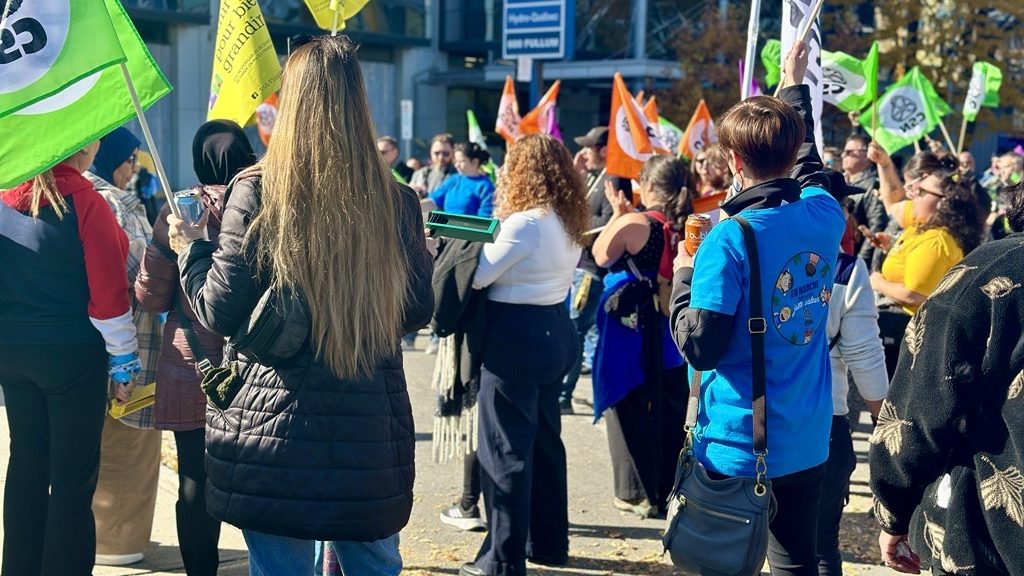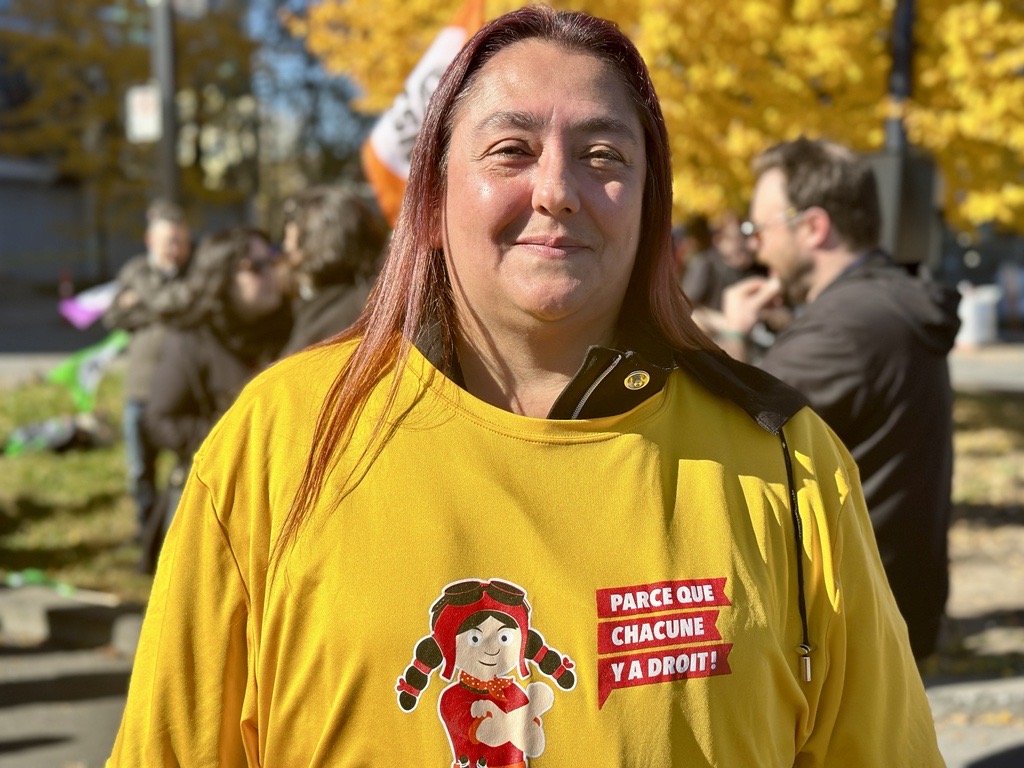Quebec daycare workers rally outside family minister’s office in Montreal

Posted October 24, 2024 1:56 pm.
Last Updated October 24, 2024 11:24 pm.
Early childhood and family daycare workers in Quebec held a rally Thursday amid negotiations to renew their collective agreements.
Dozens of CSN-unionized members demonstrated outside the offices of the province’s Ministry of Family, near the Jacques-Cartier Bridge.
Waving colourful CSN flags, demonstrators denounced the provincial government’s approach to negotiations.
“I think there’s an emergency to react for the government to realize that it’s a profession that needs to be respected,” said Stephanie Vachon, Educator & Representative of CPE Workers.
“We’re being pushed and pushed and pushed and pushed every day , to do a job that is more qualified, specific with the quality and we just don’t have the tools,” said Vachon.
12 000 CPEs and family daycare workers have been without a contract since March of 2023. Negotiations are ongoing, but the workers say they’re unhappy with the slow pace.

“The average salary is between 42 and 44 thousand per year. It’s not a big sum of money for the important work they do. They make a big difference in children’s lives. Children who are well-equipped in a quality educational service will enter school one step ahead,” said Lucie Longchamp, Vice-President, responsible for the parapublic and private sectors.
They’re asking for a 17.4 per cent salary increase over 5 years and pointing to the agreement reached between Quebec and public sector unions in January 2024 as precedent.
“They expect wage increases. They expect better conditions. The network is suffering a great deal at the moment, and they need to understand that enough is enough,” said Longchamp.
Union leaders said that working conditions have deteriorated in part because of a deficit in the number of educators, which puts pressure on the workers.
“This job needs more than love; it needs also good working conditions to be able to do it the way they want to do it,” said Dominique Daigneault, President Of The Conseil Central Du Montréal Conseil Central Du Montréal Métropolitain (ccmm-csn).
“So this is also a reason why they are leaving the network and they prefer to go work somewhere else because the working conditions are better,” said Daigneault.
CityNews reached out to Quebec’s Treasury Board President Sonia Lebel, who said in a statement that:
“A 17.4 per cent increase granted to the Common Front was conditional on a quid pro quo in terms of flexibility in work organization. There is no question of forcing educators to work 40 hours a week. It should be remembered that during the last round of negotiations, we put in place several incentives, including 18% increases for qualified and specialized educators.”
“The 18% is a salary catch-up. These women had been suffering cuts for more than 2015,” said Longchamp.
Around 12,000 workers – in early childhood centres (CPEs) and in family daycares – have already adopted “progressive strike” mandates; they are slated to begin striking in November by opening their doors 30 minutes later every day of the week.
“We’ll lose salary every day we strike. So It’s not what we want to do, but when we’re not advancing, we’re not getting anywhere. It’s the tool we have to make and put pressure,” said Tania Valdez Educator And Treasurer Of The Association Patronale Des Cpe De La Petite Enfance Apcpe.
The Fédération des intervenantes en petite enfance (FIPEQ) submitted its applications in September 2023, but Quebec only submitted its offers last spring.
FIPEQ has 9,000 members in family daycares and 3,000 in CPEs.
“It’s the love that we receive from the kids. You’re like a superhero for them. They are so happy to see you,” said Vachon.











